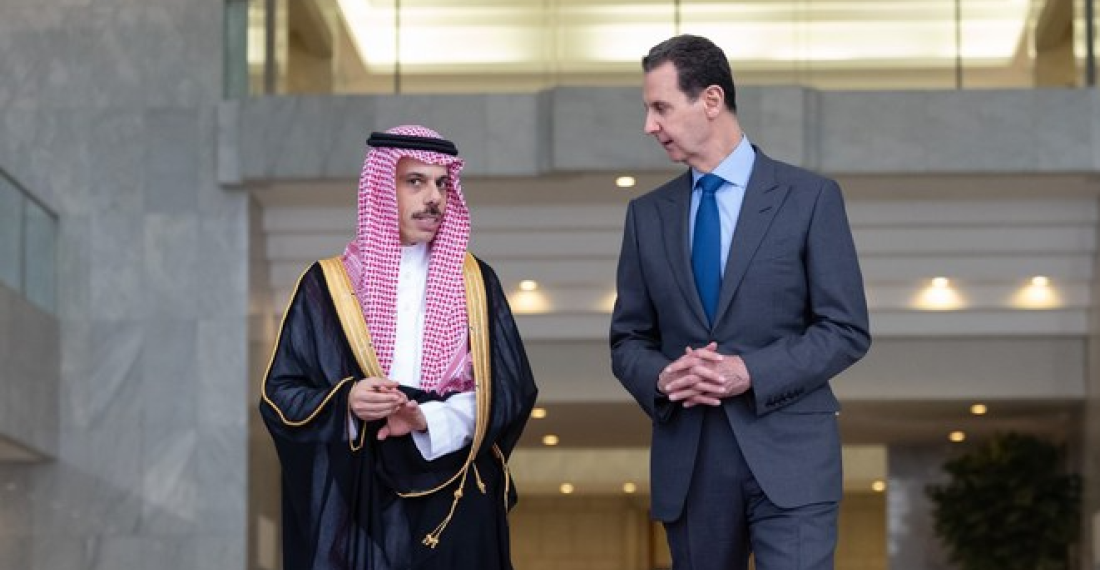Saudi Arabia’s Foreign Minister Prince Faisal bin Farhan arrived in Damascus on Tuesday (18 April) for talks with Syrian President Bashar al-Assad amid Syria's gradual rehabilitation into the Arab community.
The visit is the first by a senior Saudi diplomat since relations were severed following the outbreak of the Syrian civil war in 2011.
According to the Saudi Foreign Ministry, the Prince Faisal and President Assad discussed steps to "achieve a comprehensive political settlement that...contributes to Syria’s return to the Arab fold."
Prince Faisal also told the Syrian President about the importance of providing a suitable environment for aid to reach all regions in Syria, and creating appropriate conditions for the return of Syrian refugees and displaced persons.
On his part, the Syrian president said: "Sound relations between Syria and the Kingdom of Saudi Arabia should be the norm. Such ties not only benefit the two countries, but also the Arab world and the region."
Regional moves to rehabilitate Syria into Arab community
Last week, Syria’s Foreign Minister Faisal Mekdad visited Jeddah for discussions with Prince Faisal on Syria's unity, security, stability, and territorial integrity, where they pledged to seek a political solution to the Syrian crisis, and welcomed the start of procedures for resuming consular services and flights between the two countries.
The same week, foreign ministers from the Gulf, Egypt, Iraq, and Jordan also held a consultative meeting in Jeddah to discuss efforts to a similar end.
These developments come after a string of regional rapprochements between long-standing rivals, including the Saudi Arabia-Iran deal on the normalisation of relations on 10 March, and a deal between Qatar and Bahrain on 12 April to restore diplomatic ties.






